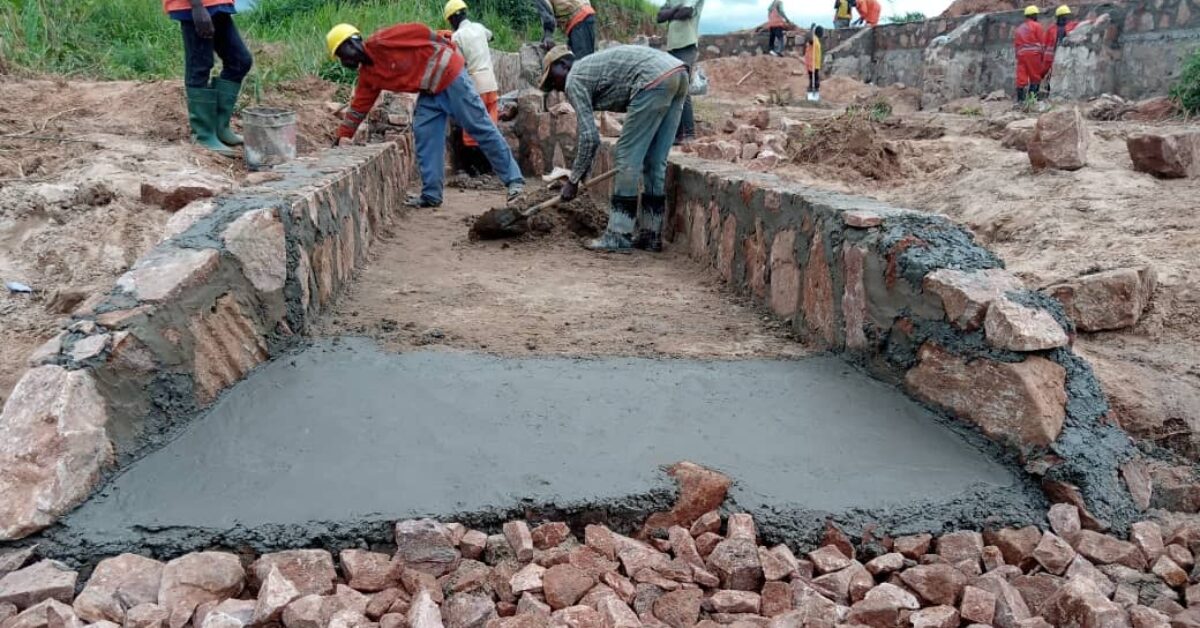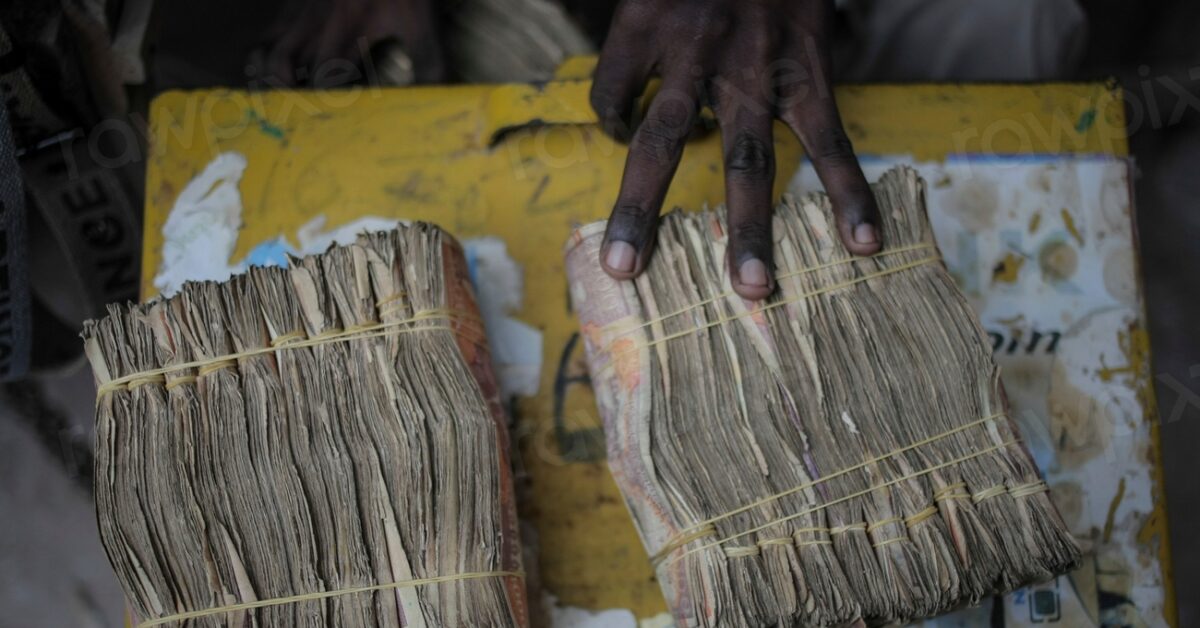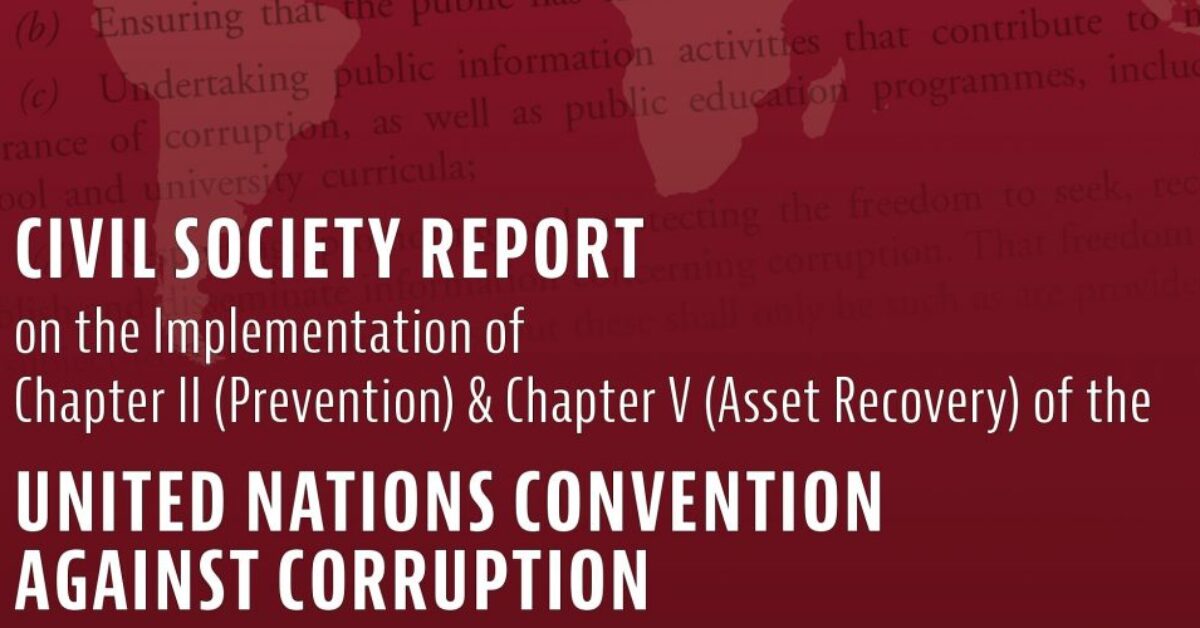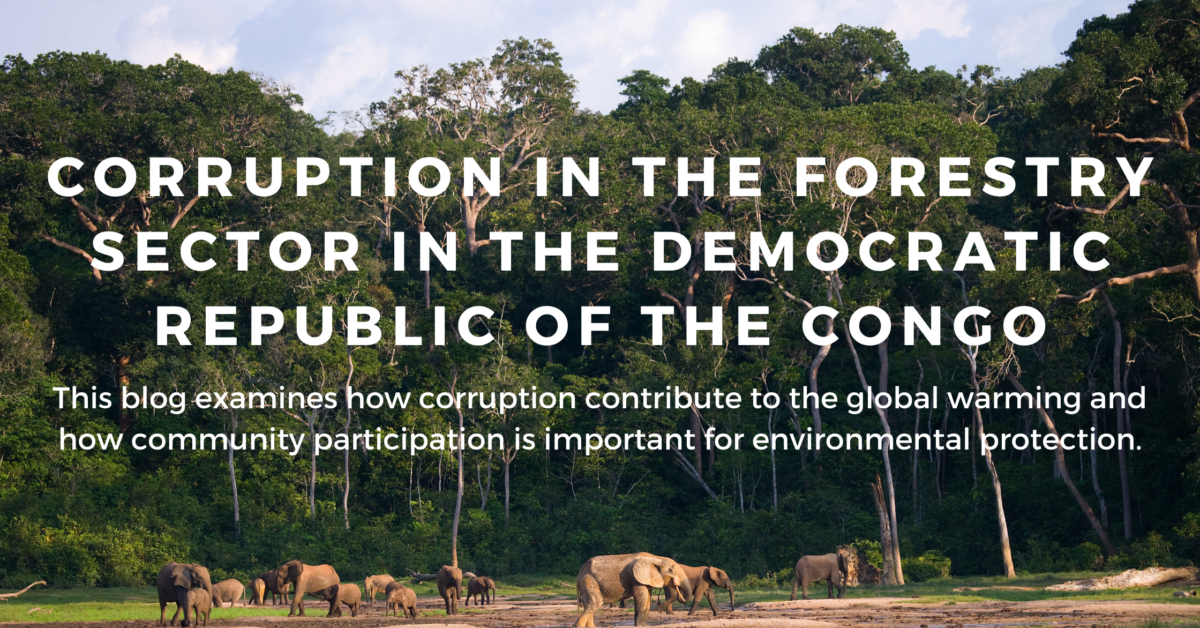The Democratic Republic of the Congo is working hard to advance the implementation and enforcement of provisions under both Chapter II (Preventive measures) and Chapter V (Asset Recovery) of the United Nations Convention against Corruption (UNCAC). A recent report authored by the Anti-Corruption Research Centre (Centre de Recherche sur l’Anti-Corruption, or CERC) paints a picture of key strengths and hurdles with regards to UNCAC implementation in the DRC and concludes with recommendations to various state sectors for tackling corruption more effectively in the country. The report is intended as a contribution to the UNCAC implementation review process in its second cycle, with technical and financial support from the UNCAC Coalition.
The main difficulties with the DRC’s implementation of Chapter II of the UNCAC include a lack of political will, political interference and the politicization of the judiciary, which prevents the prosecution of alleged perpetrators. This is coupled with ineffective anti-corruption institutions and bodies characterized by insufficient independence and resources; diplomatic or parliamentary privileges and immunities, and an overall lack of effective, coordinated action against corruption. With respect to Chapter V, weak judicial cooperation with other countries makes it difficult to recover assets. Despite the international and regional legal instruments against corruption the DRC has become party to, few results have been achieved to date.
Nevertheless, recent developments in the country bode well for progress. With the advent of the Tshisekedi administration, there was a political commitment to ensure better prevention of corruption and to achieve higher levels of integrity, transparency and accountability in the management of public finances. For the first time in the history of the DRC, ministers in office, the director of the cabinet of the head of state, provincial governors, and several high dignitaries have been called to account by the courts for serious suspicions of embezzlement.
The official UNCAC review process in the DRC is ongoing. This report was written at the same time as the official country review, which was delayed for a variety of reasons, including a lack of political will to support the review process. Little published information on the review process is available, and information about the country visit is not known. The governmental experts list is the only official document currently available on the DRC’s UNODC country profile page, and the self-assessment checklist is currently being compiled with limited participation from several civil society organizations (CSOs). The publication of other official documents, such as the full country report, has been met with great reluctance by government authorities. In the meantime, CERC has repeatedly pleaded with the Presidency of the Republic, through the Ministry of Justice which coordinates the UNCAC review in the DRC, to sign the UNCAC Coalition’s Transparency Pledge, without success thus far.
The full civil society parallel report in French can be found here or at the bottom of this page. The translated version of the report in English is forthcoming.
Main findings
Below are several of the key findings from the report, grouped according to topic:
Preventive Anti-Corruption Policies and Practices
In 2009, a National Forum on the Fight against Corruption (FONALC) was organized with the aim of formulating the main pillars of the National Strategy on the Fight against Corruption in the DRC. Attended by over 450 delegates from public institutions, civil society, the business community, as well as national and international experts, 104 resolutions emerged from this Forum, and three laws, in particular, were drafted: on the prevention and fight against corruption; on the declaration of assets; and on the protection of witnesses, whistleblowers and victims of corruption. More recently, at the end of 2021, a workshop to approve the new anti-corruption strategy in the DRC was organized in Kinshasa.
In 2010, the National Anti-Corruption Strategy Paper and the draft anti-corruption laws were submitted to the government for approval, yet were met with political resistance. In general, the absence of specialized anti-corruption laws means that the fight against corruption in the DRC continues to be impeded by an outdated legal framework that lacks the political anchoring imperative to any fight against corruption.
Preventive Anti-Corruption Bodies
Since 2019, several bodies have been actively involved in the prevention and fight against corruption in the DRC, including the General Inspectorate of Finance (IGF), the Court of Auditors (CC), the National Financial Intelligence Unit (CENAREF) and the Observatory for the Monitoring of Corruption and Professional Ethics (OSCEP). Although the parliamentary passage of a law on the organization and operation of a national anti-corruption agency has stalled, the Presidency of the Democratic Republic of the Congo created a specialized anti-corruption agency in 2020: the Agency for the Prevention and Fight against Corruption (APLC). Its mission is to contribute to the development and effective implementation of anti-corruption strategies at different levels in order to determine which mechanisms can best be applied to the DRC.
Despite the presence of all these institutions, the DRC is still losing an average of 15 billion dollars per year to fraud, corruption and mismanagement of public funds. Anti-corruption bodies are lacking legal safeguards which enable them to effectively and independently exercise their mandate, protecting them from undue political influence. This is combined with unfulfilled promises for the allocation of the necessary material for the functioning and operational development of such bodies. Moreover, the arrest of the APLC’s coordinator and the suspension of two directors from the same agency for extortion of funds and abuse of power, point to a lack of integrity within some of the anti-corruption agencies themselves.
Public Sector Employment
Although the National School of Administration (ENA-DRC) was conceived of in 2013 to contribute to the training of an efficient, honest and transparent public sector, the latter has not garnered sufficient respect or praise for its virtues. Recruitment is currently based on political and family affiliations instead of an open and transparent process including the publication and dissemination of vacancy announcements, the recording of interviews, the scoring of candidates, administration of written tests, and the use of interview panels. Moreover, an investigation by the Public Prosecutor’s Office revealed that more than 130,000 ‘ghost’ workers were benefitting from state salaries and 5000 bank accounts belonging to non-existent government employees were regularly supplied with state salaries. However, the investigation has yet to be concluded.
Codes of Conduct & Asset Declarations
All public officials are bound by a code of conduct, however, if violated, there is no body or mechanism to report to. While sanctions are provided for in the code of ethics of public officials, these are rarely applied. With respect to asset declarations, a specific legal framework on the matter is lacking, apart from what is contained within the Constitution. Candidates for elected office are not required to file an asset declaration prior to an election. Nevertheless, good practices have been exhibited by several political officials who submitted declarations to the Constitutional Court.
Public Procurement
While a variety of laws and decrees regulate public procurement on paper; in practice, the absence of a comprehensive and operational information system to manage contracts is a major shortcoming in the DRC. Non-compliance with the law is rampant, with an estimated 80% of contracts awarded on the basis of mutual agreement in 2019, rather than by set standards. Secure, accessible and confidential channels for reporting fraud, corruption, bad practice or unethical behavior do not exist. However, limited information on procurement is available on the Public Procurement Regulatory Authority’s (ARMP) website, and the emergence of more civil society organizations like CERC on the ground in DRC could lead to partnerships focused on strengthening the integrity of public procurement.
Public Finances
In recent years, the DRC has undertaken reforms in the area of public financial management. In its effort to modernize the legislative framework for economic and social life, important laws concerning public finance have been revised, including: tax legislation applicable to small and medium-sized enterprises (SMEs), the law on public procurement, the draft customs code, and the law introducing value-added tax. Budget monitoring statements are published online at the end of the month, and communicated to beneficiary ministries and agencies.
Nevertheless, non-compliance with budget laws has resulted in the overspending of budget allocations by institutions and ministries, to the detriment of pro-poor spending and leading to significant discrepancies between the appropriations voted and the budget executed by the government. The absence of a general accounting system for the State, and excessive recourse to exceptional procedures in the expenditure chain, caused in part by the lack of fluidity of procedures, are additional obstacles.
Access to Information & Civil Society Participation
The non-existence of a law on access to information prevents civil society, the Congolese media and all citizens of the country from easily obtaining the right information from the necessary sources. A toll-free number for reporting corruption cases exists via the OSCEP, but it is not widely known among the general public due to a lack of awareness-raising about its existence through the media.
Freedom of expression and assembly are enshrined in Articles 23 and 26 of the Congolese Constitution. Civil society organizations exist in the country as legally registered associations. The anti-corruption landscape in the DRC is characterized by several civil society organizations, including the Anti-Corruption Research Centre (CERC). The participation of civil society actors in a Multi-stakeholder forum on the fight against corruption in the Democratic Republic of the Congo in October 2021 demonstrated a step forward, with CSOs assisting in the development of policies and strategies to combat corruption.
Despite this, CSOs are often demonized and considered to be adversaries rather than partners. One such case is that of the head of a prominent mining company who threatened to sue anti-corruption CSOs for their exposing of alleged embezzlement to the tune of 750 million dollars in the DRC. Furthermore, the DRC has not undertaken any national awareness-raising or educational campaigns to encourage and deepen knowledge among the general public about the risks of corruption.
Measures relating to the judiciary
The 2006 Constitution set out to restructure the entire judicial system through the creation of two jurisdictional orders, a Constitutional Court and placing military courts under the Court of Cassation. In the spring of 2015, the Ministry of Justice and Human Rights alongside the Superior Council of the Judiciary organized a multi-stakeholder forum on justice, during which priority actions for the general reform of the judiciary were decided upon. In 2017, the Ministry of Justice adopted an action plan for justice reform, in effect until 2026. While more than 200 magistrates were dismissed on the basis of corruption or incompetence in 2018, the judiciary continues to suffer from a lack of routine monitoring to assess compliance. It is ill-equipped and under-funded, and political interference acts as a constraint on its independence.
Private Sector Transparency
The legal framework regulating the private sector in the DRC covers aspects such as public-private partnerships, extractive industries, as well as public utility and non-profit associations. The creation of a ‘one-stop shop’ website to launch a business (GUCE) has facilitated the process of setting up subsidiaries, representations or branches of companies, and streamlined other business formalities. Yet, corruption cases involving private companies persist, and there is no legal obligation to disclose beneficial owners of companies. This impedes information sharing and monitoring efforts in the country.
Money Laundering
The DRC faces a range of factors that expose it to money laundering and the financing of terrorism (ML/FT activities). The structure of its economy with a preponderance for the informal sector, the high use of cash due to low levels of financial coverage, the high dollarization of the economy due to weak foreign exchange monitoring, the absence of a reliable identification system, and widespread corruption create an environment conducive to criminal financial activities.
The DRC has a financial intelligence unit (CENAREF) that processes and analyzes reports it receives from entities on suspected money laundering and terrorist financing. The Unit’s limited number of staff and the amount of suspicious transaction reports (STRs) received and processed demonstrate that the Congolese authorities have a poor overall understanding of the risks of money laundering and terrorist financing, to which the country is so exposed. With respect to technical compliance, the legal framework developed in 2004 has not been updated to keep pace with developments in international standards, including the 2012 FATF Recommendations.
International Cooperation
The DRC has signed bilateral agreements with several countries, and the agreement on cooperation and mutual legal assistance between the Economic Community of Central African States (ECCAS). The country is an active member of the Kimberley Process Certification Scheme (KPCS), promoting international cooperation in the fight against blood diamonds. The DRC was also the first state to nationally implement the mineral certification mechanism for the conflict materials ‘3TG’ (tin, tantalum, tungsten, gold), developed in 2010 by the International Conference of the Great Lakes Regions (ICGLR). In addition, CENAREF, the financial intelligence unit, has signed international agreements with three FIUs in Congo, Belgium and Morocco.
However, despite the transnational nature of crimes in the DRC, international cooperation in the fight against AML/CFT is limited. The country does not have a central department dedicated to international judicial cooperation in AML/CFT matters at the Ministry of Justice. In fact, requests which arrive at the office of the Minister of Justice are forwarded to the courts for judicial action.
Key Recommendations
In its report, the Anti-Corruption Research Centre (CERC) makes several key recommendations to authorities to ensure the full implementation of the UNCAC in the Democratic Republic of the Congo, for example:
- Strengthen the capacity of anti-corruption and anti-money laundering investigation bodies, ensuring their full independence;
- Set up a structure in charge of monitoring asset declarations made by public officials, digitize filing processes and increase penalties for failure to declare assets;
- Criminalize the illicit enrichment of civil servants, public officials and magistrates;
- Adopt a law on access to information, the protection of whistleblowers and an anti-corruption law;
- Improve and harmonize the collection and processing of claims and complaints against whistleblowers;
- Adopt a law on the protection of heritage;
- Implement the recommendations by the Court of Auditors on public auditing;
- Widely involve civil society in the UNCAC review process, and authorize the publication of the full country report of the review of the DRC’s implementation of the UNCAC, once completed;
- Make greater use of international mutual legal assistance and other forms of international cooperation to prosecute money laundering offenses and identify threats of terrorist financing on a transnational scale;
- Ensure that beneficial ownership information on legal persons is made available to foreign competent authorities upon request, and that competent authorities take the necessary steps to identify the beneficial owners of foreign legal persons.
More specific recommendations to different government figures and authorities are contained in Chapter VI of the report





